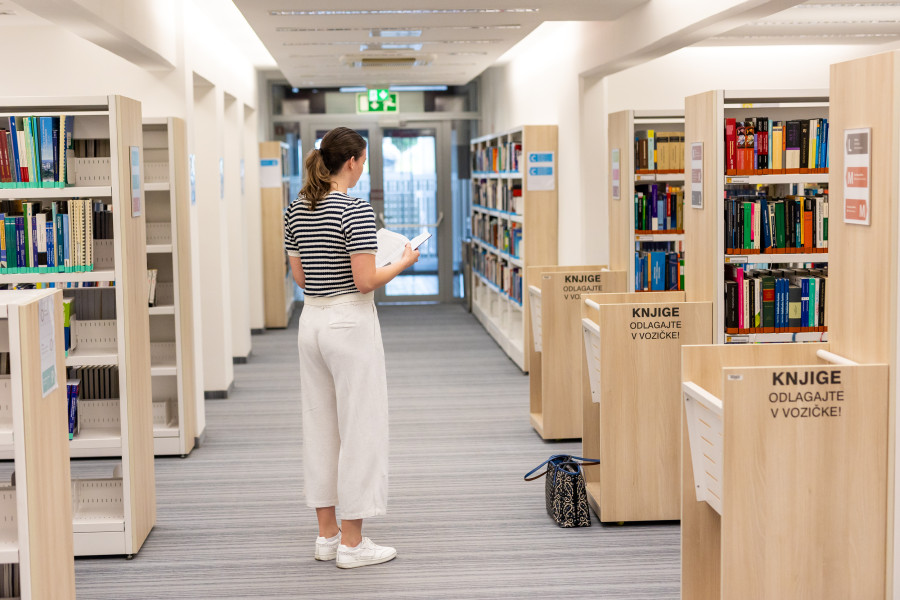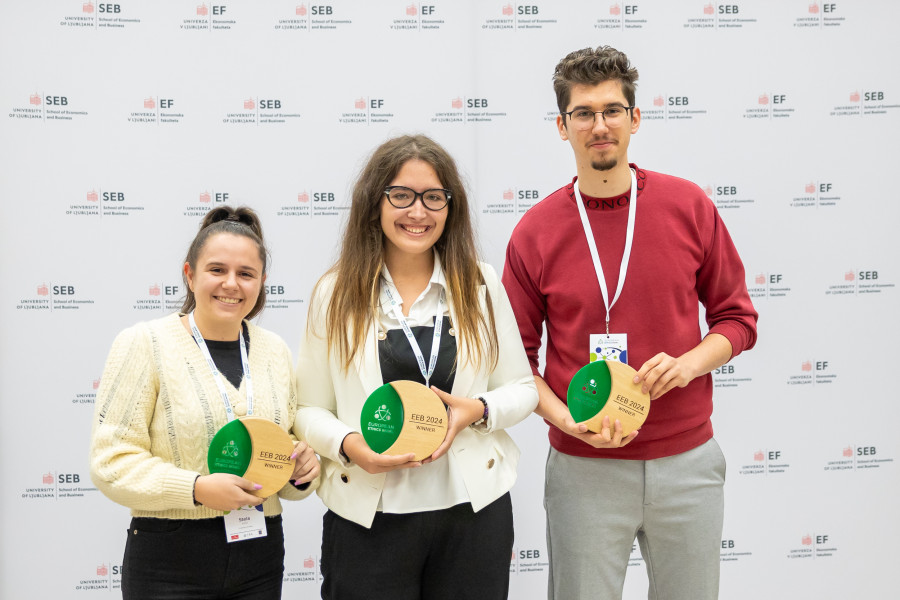
Studying at UL SEB
Student life is much more than just studying. It can be the best, most challenging, most stressful and most rewarding time of your life. In this section we have put together some practical information about what to expect as a student at UL SEB and what activities you can take part in.
Academic calendar
ACADEMIC CALENDAR FOR FULL-TIME STUDENTS
In Slovenia, the academic year begins on 1 October and ends on 30 September. The academic calendar defines the duration of organised study activities, examination periods, school holidays and public holidays.
The study year is divided into two semesters:
- winter semester (October to January): lectures take place from 1 October to mid-January. The four-week period after the end of the lecture period is the winter examination period.
- spring semester (February to June): lectures take place from mid-February to the beginning of June. The spring examination period follows the end of the lecture period in the spring semester.
Full-time students can also take examinations in the fall examination period, which lasts from the end of August to mid-September.
ACADEMIC CALENDAR FOR PART-TIME STUDENTS
Part-time degree programmes are based on a special schedule designed to keep courses consecutive. Students are assessed at the end of each course and then continue to the next course. Courses are held twice a week in the afternoon (usually after 5pm). This type of study requires students to work more independently.
Year plus
YEAR PLUS is designed to help international students in their first year of study in Slovenia to integrate more easily into academic and everyday student life and to adapt to the Slovenian system and culture.
It enables students to learn Slovene free of charge (as part of the compulsory Slovene as a foreign language course) and at the same time fulfil the study obligations of their degree programme.
Detailed information on YEAR PLUS can be found on the website of the University of Ljubljana.
Important: Year plus is not intended for candidates applying for degree programmes that require knowledge of Slovene at level B2 of the Common European Framework of Reference for Languages (CEFR). It is also not intended for exchange students (Erasmus +, CEEPUS, bilateral agreements, etc.).
Student card and IT systems
STUDENT CARD
Students receive their student ID card at the beginning of the academic year. The student card serves as proof of active student status and enables students to exercise their rights and enjoy other benefits of student status (subsidised student meals, discounts on admission to museums and other visits, etc.).
IT SYSTEMS
UL-ID is the digital identity of the students of the University of Ljubljana. It enables the use of University of Ljubljana information services. The UL-ID digital identity has a standard format: username@student.uni-lj.si.
University of Ljubljana has decided to make the use of multi-factor authentication (MFA) mandatory for all users since 2024. This means that all services used by university students require, in addition to UL login, verification of login either with a Microsoft Authenticator application installed on their own mobile device or with a numerical code received via SMS. This allows users of university services to be reliably identified and better prevents phishing and misuse of user accounts.
Student Council
Tutoring and consulting
Extracurricular activities
International full-time students and exchange students are welcome to participate in the activities and events organised by the University of Ljubljana.
Sports activities
The Centre for Extracurricular Activities offers a comprehensive ECTS and leisure programme to ensure a balanced lifestyle during your studies. Admission to the Rožna Dolina University Hall is free with a valid student ID. At the University of Ljubljana´s Faculty of Sport you can also swim under expert guidance.
For music lovers
Visit the University of Ljubljana's Academy of Music concert series and enjoy the music performed by students and professors.
AGRFT Festival
The Academy of Theatre, Radio, Film and Television of the University of Ljubljana organises the annual AGRFT Festival with numerous events, from productions and exhibitions to performances and short films.
Mental health support
The psychosocial counselling service is aimed at anyone who finds themselves in distress and is having unpleasant experiences in connection with their studies or everyday life, or who would like to talk to a professional about everyday problems in a calm, relaxed and confidential manner.
You can find more information about student support services on the University of Ljubljana website.


